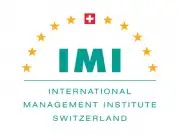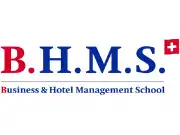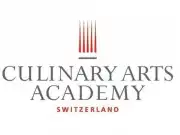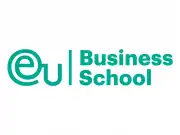Master's programs in Switzerland for international students
- Advantages of Master's Programs in Switzerland
- Formats and Levels of Master's Programs in Switzerland
- Top Universities and Schools for Master's Programs in Switzerland
- How to Apply for Master's Programs in Switzerland
- Language of Instruction and Preparation for Master's Programs
- Tuition Fees for Master's Programs in Switzerland
- Scholarships and Grants for Master's Programs
- Career Prospects After Master's Programs
- Frequently Asked Questions

Master of Science - International Hospitality and Events Management
International Management Institute SwitzerlandThis MSc program, offered by IMI, is designed for students who have a Bachelor's degree but no professional experience. The curriculum focuses on core strategic management skills in the hotel and events industries and provides a wide understanding of operational management, planning, and strategy…

Master of Science - International Hospitality Business Management
B.H.M.S - Business and Hotel Management School - Lucerne, SwitzerlandGraduates and those seeking to advance their careers in the hospitality industry can benefit from the M.Sc. programs by gaining a deeper understanding of the industry and more advanced skills.
Students will gain the skills and information necessary for a successful career in the hospitality,…

Master of Science - Global Business Management
B.H.M.S - Business and Hotel Management School - Lucerne, SwitzerlandStudents having a bachelor's degree, with or without work experience, are the target audience for the Master of Science in Global Business Management.
In today's global and rapidly evolving environment, it provides insight into managing both the economy and people. It offers a rigorous and…

Master of International Business - Entrepreneurship
Cesar Ritz CollegeDuring one year of intesive program you will:
- Open up career opportunities int industries such as retail, consulting, banking, and more
- Turn your ideas intro a sustainable and profitable business
- Learn directly form the experts with our PhD faculty
- Apply…

Master of Arts - International Hospitality Business Management
SHMS - Swiss Hotel Management SchoolDuring this one-year program students will:
- Gain a practical experience that is followed by a project for a business in that area
- Study the theory and put their newfound knowledge to use

Master of Science - International Hospitality Management
SHMS - Swiss Hotel Management SchoolLearn more about the hotel industry while developing highly employable skills in a variety of specialty areas, such as hospitality management, digital value creation, and design management.
In this one-year course, students will:
- Study specializations offered in hospitality…

Master - Hospitality Management (Online Executive)
SHMS - Swiss Hotel Management SchoolIf you're a working professional looking to advance your career, consider this online master's degree that has been recognized by your field. You can customize your study schedule to last anything from one to two years. Access is available 24/7/365 from any location.
Graduate with a:
- EXECUTIVE…

Master - International Management
Geneva Business SchoolA Master of International Management can be earned in one and a half years of full-time study, and it will equip you with the knowledge and skills you need to be an effective manager in today's dynamic global economy. In addition to learning cutting-edge theory in the classroom, you'll have the opportunity…

Master of Arts - Culinary Business Management
Culinary Arts AcademyFocused for career-changers, food and beverage entrepreneurs, and culinary aficionados, this program teaches you how to make recipe books, build your own food concepts, and establish a business strategy.
Learn the skills you need to start your own restaurant. Ideal for people looking to…

Master - Management
EU Business SchoolThe world is undergoing rapid political, economic, social, and technical transformation. Adapting to and shaping these intricate shifts will demand novel styles of leadership. This course delves into what it means to be a true leader in the modern period, including topics such as operational and marketing…
Advantages of Master’s Programs in Switzerland
A Master’s degree in Switzerland combines academic rigor, European-quality education, and a practical focus. Swiss universities are renowned for their commitment to innovation, multicultural environment, and alignment with the international job market.
Key advantages:
- High-quality education recognized in Europe and beyond
- Most universities offer programs in English
- Flexible academic structure, including modules, internships, and research projects
- A safe and stable country with a high standard of living
- International environment – over 25% of Master’s students are foreigners
- Degrees valued in the EU, Canada, Asia, and the Middle East
- Strong university ties with international companies and research centers
Formats and Levels of Master’s Programs in Switzerland
Switzerland offers various Master’s formats tailored to academic and professional development:
- Master of Arts / Master of Science (MA/MSc) – academically oriented programs in humanities, social sciences, engineering, and natural sciences
- Master of Business Administration (MBA) – practice-oriented programs for professionals with work experience
- Executive Master – designed for experienced managers
- Joint Degree / Double Degree – collaborative programs with universities in other countries
- Research Master’s – in-depth preparation for academic or research careers, ideal for those pursuing a PhD
Duration: from 1 year (intensive MBA) to 2 years (academic and engineering fields).
Top Universities and Schools for Master’s Programs in Switzerland
| University / School | Master’s Program | Tuition Fee (CHF/year) | QS Ranking 2025 |
|---|---|---|---|
| ETH Zurich | MSc in Data Science | 1,300 | Top 10 globally |
| University of Geneva | MA in International Relations | 1,000 | Top 150 globally |
| University of Lausanne (UNIL) | MSc in Finance | 1,160 | Top 200 globally |
| University of St. Gallen | Master in Strategy and International Management | 6,500 | Top 100 globally |
| Ecole Hôtelière de Lausanne (EHL) | Master in Hospitality Management | 41,000 | QS #1 in Hospitality and Leisure |
These universities provide access to top-tier academic resources, international networks, and career opportunities in Europe.
How to Apply for Master’s Programs in Switzerland
The application process includes the following steps:
- Choose a program – via university websites or centralized platforms
- Prepare documents:
- Bachelor’s diploma or equivalent
- Academic transcript (grades)
- Language proficiency certificate: IELTS, TOEFL, or Duolingo (minimum B2 level)
- CV
- Motivation letter or essay
- Letters of recommendation (2)
- Portfolio (for creative/architecture fields)
- GMAT/GRE (for business programs)
- Submit an online application – via the university portal
- Pay the application fee (50–150 CHF)
- Interview (if required)
- Receive an acceptance letter and apply for a student visa
Application period: November to March (fall intake). Some universities accept applications until June.
Language of Instruction and Preparation for Master’s Programs in Switzerland
Preparatory programs are recommended for:
- Students without a European Bachelor’s degree
- Those needing to improve academic English
- Applicants switching fields (e.g., from engineering to management)
Program types:
- Pre-Master Foundation
- Academic Pathway Program
- Pre-Experience Master Program
Duration: 3–9 months
Tuition fee: 5,000–18,000 CHF
Programs are taught in English and often include academic writing, case analysis, ECTS system training, and foundational coursework.
Tuition Fees for Master’s Programs in Switzerland
Swiss universities fall into two categories: public (subsidized) and private. Costs vary significantly.
Public universities:
- 1,000–3,000 CHF/year (e.g., ETH Zurich, UNIL, UNIGE, USI)
Private schools/business schools:
- 15,000–45,000 CHF/year (e.g., EHL, EU Business School, Geneva Business School)
Monthly living expenses:
- Housing: 700–1,800 CHF
- Food & transport: 500–800 CHF
- Health insurance: 100–150 CHF
- Study materials: 100–200 CHF
Minimum bank balance for a visa: 21,000 CHF per academic year.
A clear financial plan is essential: visa approval requires proof of funds.
Scholarships and Grants for Master’s Programs in Switzerland
Students may qualify for:
- Academic scholarships – awarded for high GPA, GMAT/GRE scores, or research involvement
- Need-based aid – assessed via family income
- Merit scholarships – for essays, leadership, or community engagement
- University grants – internal funding programs
- Assistantships – research roles with partial tuition coverage
- Corporate scholarships – sponsored by partner companies
Selection criteria:
- Academic performance
- Program fit
- Personal qualities
- Nationality/financial need
Deadlines: 6–10 months before the program starts. Students from CIS/India may apply for UNIL, HES-SO, USI, or HSG grants with strong academic records.
Career Prospects After Master’s Programs in Switzerland
A Swiss Master’s degree opens doors to careers in Europe and globally.
High-demand fields:
- Finance & banking
- Sustainability & ESG
- IT & Data Science
- Hospitality & tourism management
- Biotechnology & medicine
- International relations & law
Top employers:
- Nestlé, Novartis, Roche
- UBS, Credit Suisse
- Google Switzerland, Logitech
- WHO, UN, WTO (Geneva)
Internships & projects:
- Placements at Swiss/international firms
- Consulting projects with real-world case studies
- Support from university career centers
ROI: 2–4 years on average. Compared to France, Germany, or the Netherlands, Swiss Master’s programs are costlier but offer faster career growth and global opportunities.
Frequently Asked Questions
1. Can I apply for a Master’s in Switzerland without German/French?
Yes, most programs are in English.
2. What documents are required?
Bachelor’s diploma, language certificate, motivation letter, recommendations, CV.
3. What is the tuition fee?
1,000–45,000 CHF/year, depending on the university.
4. Are there scholarships for students from Russia, Kazakhstan, or India?
Yes, based on academic merit or financial need.
5. Can I stay in Switzerland to work after graduation?
Yes, graduates may extend their stay for 6 months to seek employment.